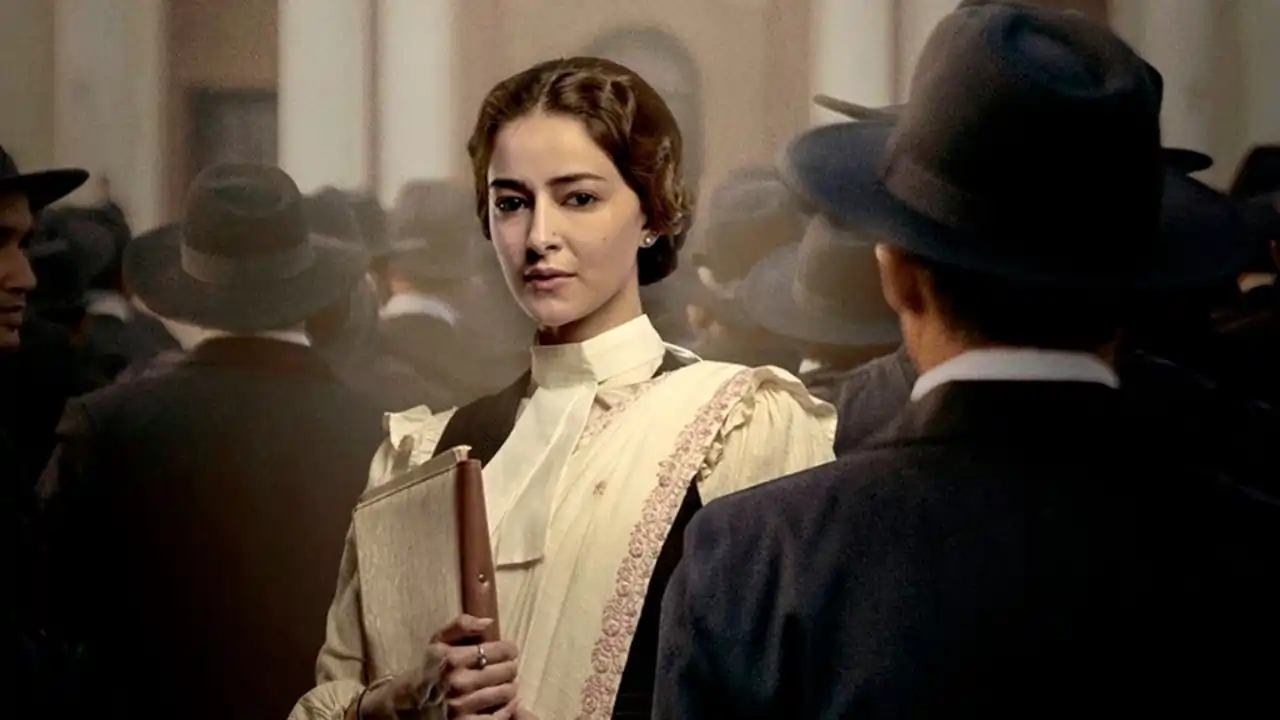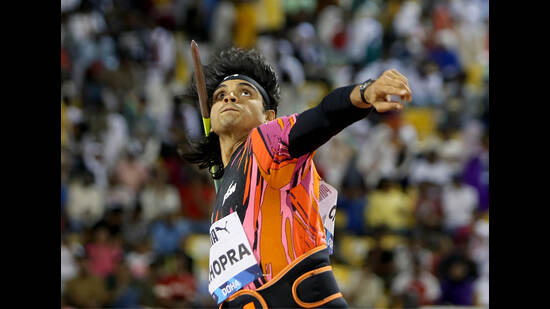
Master of the game: Who’s India’s greatest sports person?
8 months ago | 124 Views
There’s nothing sports fans love more than a bit of competition. Season stats decide which football team is on top. Tennis greats are defined by their strings of titles. Cricketers have three match formats to calculate for greatness.
But India has been producing sporting heroes in fields as diverse as javelin, track-and-field, table tennis, shooting and wrestling. Few sports get as much money and attention as cricket. Away from the spotlight, many athletes are training harder, doing more with less, to shine in fields we barely understand. How do they stack up against each other, and against India’s better-known champions?
The 2024 Paris Olympics are around the corner. All eyes are on the Indian contingent – close to 120 players, competing individually or as a team. But across Indian sport, there are new records, new wins, new fields to dominate.
Who, then, is India’s greatest, across all sports? We asked Nandan Kamath, sports lawyer and author of the book Boundary Lab; Malay Desai, director of content at Sportz Interactive; and Anjum Moudgil, sports shooter to pick the best of the best.
Of course it’s subjective and, of course it doesn’t really matter. But let the games begin!
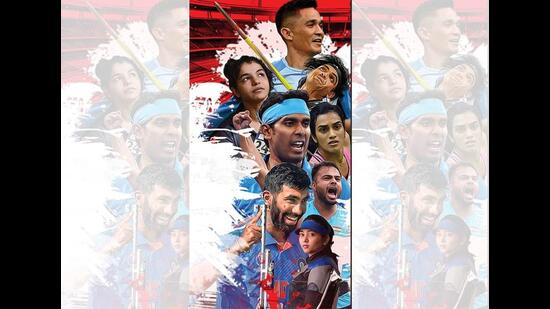
Brunch. Let’s jump right in. What makes a great player in the first place?
Anjum Moudgil. Any athlete who’s had a downfall but makes a comeback stands out to me. Someone like Sumit Antil, the Indian paralympic javelin thrower. Despite his accident, within five years, he won a gold medal at the 2020 Tokyo Paralympics and broke his own records.
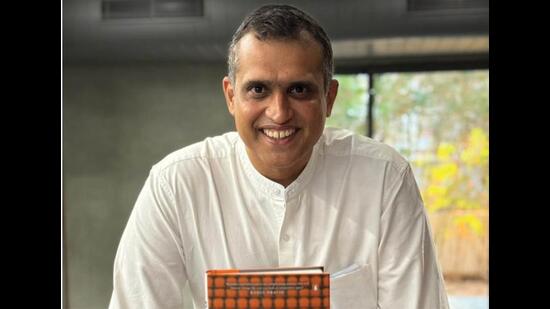
Nandan Kamath. The beauty of this question is that it’s a very difficult one to answer. Maybe 10 to 15 years ago, it might have been easier. But if I had to choose two, I’d pick two javelin champions: Olympian Neeraj Chopra, and Paralympian Sumit Antil.
Malay Desai. I agree. If we were having this debate on August 9, and if Neeraj – touch wood! – wins another gold medal, he would be the greatest, hands-down! The sportsperson I think is a strong contender for India’s greatest, though, is badminton player PV Sindhu. She’s the first Indian woman to win two Olympic medals. My filter is always the impact the athlete has on society, how many other potential Sindhus, how many other girls and boys she has inspired, to pick up a badminton racquet.
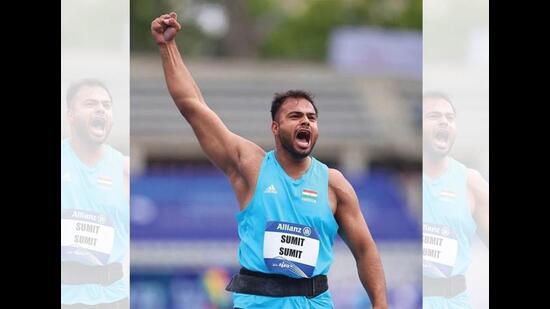
Anjum Moudgil. For me, the mental stamina these athletes have and how they’ve etched their names in history is what makes them great.
Brunch. Achievement in each sport is different. Competing one-on-one against 20 people all year is so different from shining in a team sport during a short, intense season. And still, greatness shows.
Nandan Kamath. Exactly. Javelin is a track-and-field sport. We’d never won a single track-and-field Olympic medal, let alone gold. It’s an incredible achievement for Neeraj to go right to the top at Tokyo 2020, and be a contender, at the next Olympics.
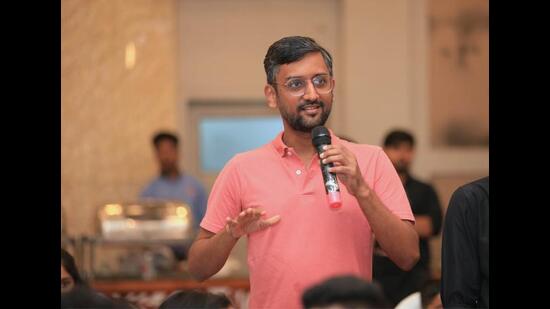
Malay Desai. Sharath Kamal, the table-tennis player, too. He peaked in 2003-04 and started winning Commonwealth Games. It’ 2024 now and he’s still going strong two decades on, leading a team into the Olympics for the first time. He’s inspiring an entire generation of young Indians to start enjoying a sport.
Brunch. How do we measure consistency against a truckload of medals, or simply one outstanding achievement, then?
Malay Desai. Consider Kamal and table tennis. It’s a youngsters’ game, because it is all about reflexes. Kamal doesn’t have the fastest reflexes. I’d spoken to him when he was just short of his 40s, and he said, “I can’t get better in my reflexes than any of the Chinese opponents, but I have tactics and I have experience, and I’m going to work on my strengths.” He also hired a younger coach recently. It’s how you put everything down and start from scratch that makes you a winner.
Nandan Kamath. It’s not just about the goals scored or the number of medals won, but it is the impact that a sportsperson has had in moving an entire discipline forward. Neeraj Chopra and Sunil Chhetri stood alone when football didn’t have the kind of support it does now. They’re responsible, in a large part, for javelin and football getting the mainstream attention it does.

Anjum Moudgil. That’s true. I’ve had conversations with so many table-tennis players who are so thankful that Sharath Kamal has been a mentor to them. I’m thankful for sports shooter Abhinav Bindra too. When he won at Beijing 2008, becoming the first Indian to win an individual Olympic gold, it changed the way the country viewed shooting. There were fewer than 500 shooters in the country then. Now, there are around 10,000, possibly more.
Brunch. This is possible even with a team sport and within a sport as beloved as cricket, then.
Nandan Kamath. Take Jasprit Bumrah, bowler and cricketer, who I feel is a once-in-25-years type of bowler. Take him out of any of the teams – T20, ODI, or Test matches, and India is severely impacted. A useful qualifier for greatness is what it costs to NOT have that person on a team. The team has made up for the absence of other superstars, but Bumrah is irreplaceable.
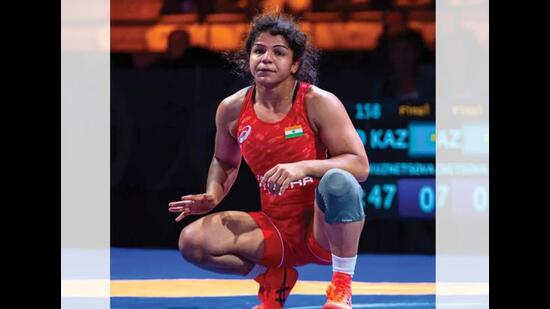
Brunch. We haven’t! And so many sports now have stories like this.
Malay Desai. Look at it from the perspective of women athletes. One girl winning the Olympic medal is the breakout moment that an entire generation of girls need. Remember that point, it was 1am India time, when wrestler Sakshi Malik won bronze at the 2016 Summer Olympics in Rio? Sometimes, it’s that one medal that changes everything.
Nandan Kamath. Sakshi Malik took the lead in the protests against the Wrestling Federation of India (WFI) and its President. She challenged the system, a risk very few sports heroes, even better-known ones, take. With American boxer Muhammad Ali, greatness began in the boxing ring, but his activism against the Vietnam war, supporting racial pride, it continues past the sports success. Sakshi stands for what she believes in. That level of integrity is a kind of greatness too.
Anjum Moudgil. Younger sports shooters such as Manu Bhaker and Mehuli Ghosh also inspire me. Manu has the discipline and will required to be the best. Mehuli, too. I’ve seen her journey – before Tokyo and after it – and her low phases, and she came out stronger despite it all to break her own records.
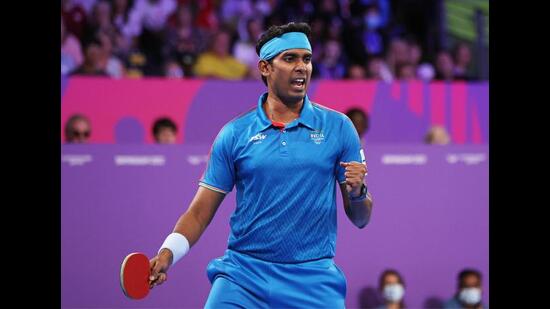
Malay Desai. I had a fanboy moment with Sharath Kamal, that night at the 2022 Commonwealth Games in Birmingham, when he won a gold medal in the men’s singles category. Everyone wanted a piece of him, and he waited to talk to everyone in the media – perhaps understanding that this was Indian TT’s moment in the sun. The humility, patience, and professionalism I saw off-camera showed how he’s been a top-quality human too.
Brunch. Who’s going to emerge as India’s greatest after Paris 2024?
Malay Desai. I have secret hopes for hockey. But it depends on the competition and the weather. I’m bummed the Indian women’s team couldn’t make it. But now, I’m rooting for goalkeeper PR Sreejesh and the men’s team.
Anjum Moudgil. Someone in badminton. We’re all rooting for Chirag Shetty and Satwiksairaj Rankireddy, who represent India in the men’s doubles.
Nandan Kamath. I’m excited to see how Neeraj Chopra and Sumit Antil perform. I think they embody the spirit of the entire contingent going to Paris 2024.
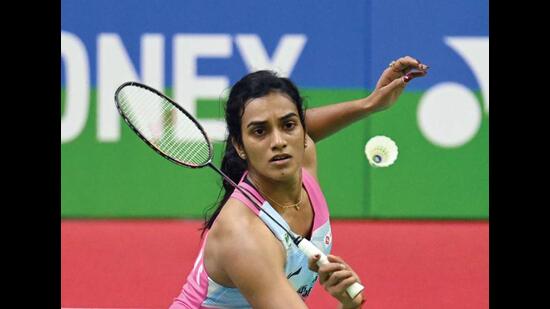
Brunch. How do we progress from a sports-watching to a sports-playing culture?
Malay Desai. As a society, there’s one thing we can do better – celebrate the failures, celebrate the fourth ranks, and everyone who tries. We should cherish the stories of participation.
Anjum Moudgil. The way athletes are celebrated after they win is proportional to the way they’re bashed after they lose. I think this is the reason why the country has had fewer international medals too.
Nandan Kamath. Absolutely. Most people are sports watchers – and not players – because they’re taught that sports is about winning medals. It’s great to have sports achievements, and these athletes are ambassadors for that, but at some point, we need to focus more on the journey, and the role of sport in everyone’s life.










